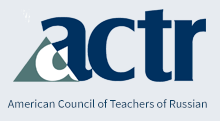Russian Language Journal
Keywords
second language, psychology, linguistics, conversation
Abstract
The successful acquisition of second languages depends as much on good psychology as it does on sound linguistics. Both teaching and learning can be enriched by understanding and applying basic psychological principles.
The speaking and reading performance of second-language learners has received a great deal of attention in areas of applied linguistics such as conversation analysis, speech production analysis, oral testing research, classroom interaction analysis, and task-based learning research.(Ellis, 1994). In addition to linguistic variables, researchers have examined psychological determinants of learner achievement in speech performance, among them “individual difference variables.” These relatively stable learner characteristics—including language aptitude, motivation, and personality— have been found to exert a pervasive influence on various learning behaviors, including the learning of second languages. (See, for example, Arnold 1999; Dörnyei 1994; Ehrman 1996; Leaver 1998).
Recommended Citation
Ehrman, M. (2005). Learners and teachers: The application of psychology to second-language acquisition. Russian Language Journal, 55(1). https://doi.org/10.70163/0036-0252.1248


